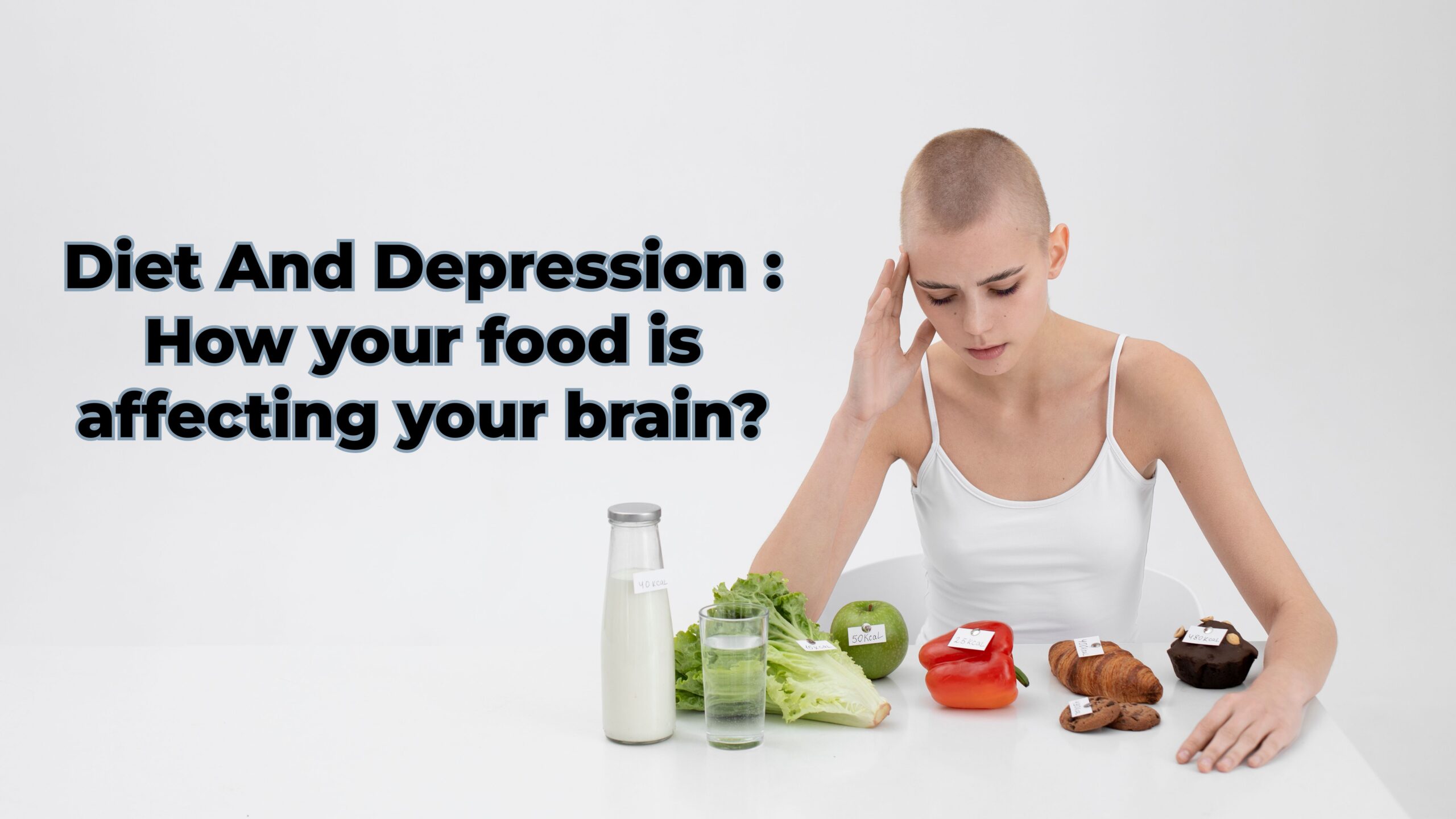
Diet And Depression : How your food is affecting your brain?
In today’s world, the link between diet and mental health is clear. What we eat can greatly impact our mental well-being, affecting conditions like depression, anxiety, and mood swings. Let’s explore how diet influences mental health and how you can make positive changes.
How Diet and Depression are related?
Nutrient Deficiencies
Lacking essential vitamins and minerals, like Vitamin D, B vitamins, omega-3s, and magnesium, can worsen depression and anxiety. Eating a balanced diet rich in these nutrients is key.
Gut Health
Our gut health directly affects our mood. Diets high in processed foods and sugars can harm gut bacteria, leading to inflammation and higher risks of depression. Conversely, a diet high in fiber, probiotics, and fermented foods promotes a healthy gut and better mood.
Key Foods for Better Mental Health
Omega-3 Fatty Acids
Found in fish, flaxseeds, and walnuts, omega-3s support brain health and can reduce depression and anxiety.
Antioxidants
Berries, leafy greens, and nuts are rich in antioxidants, which fight oxidative stress linked to depression and mood swings.
Whole Grains
Whole grains like oats, quinoa, and brown rice regulate blood sugar and boost serotonin, a mood-enhancing neurotransmitter.
Protein-Rich Foods
Lean proteins from chicken, turkey, beans, and legumes help build neurotransmitters like serotonin and dopamine, crucial for mental health.
Hydration
Staying hydrated is vital for cognitive function and mood regulation. Aim for at least eight glasses of water daily.
How Depression and Diet Can be fought with good food?
Sugary Foods and Drinks
High sugar intake causes blood sugar spikes and crashes, leading to mood swings. Cut down on sugary snacks, sodas, and desserts.
Processed Foods
These often contain unhealthy fats and preservatives that harm mental health. Choose whole, unprocessed foods instead.
Caffeine
While some caffeine boosts alertness, too much can cause anxiety and sleep issues. Limit your intake and opt for herbal teas.
Tips for a Mood-Boosting: Diet and Depression
Plan Your Meals
Planning ensures you eat a variety of nutrient-rich foods and avoid unhealthy snacks.
Mindful Eating
Focus on your food and enjoy each bite without distractions like TV or smartphones.
Seek Professional Help
A nutritionist can provide personalized advice to improve your diet for better mental health.
Conclusion
Your eating habits significantly impact your mental health. By choosing nutrient-rich foods and avoiding harmful ones, you can manage depression and anxiety better. Small dietary changes can lead to big improvements in mood and overall well-being.
For more tips on managing mental health through diet, stay tuned to our blog. Share this post with others who might benefit!
Get Interactive!
Quiz Time!
- Which nutrient is NOT linked to improving mental health?
- A) Vitamin D
- B) Omega-3 fatty acids
- C) Saturated fats
- What food group should you avoid for better mood regulation?
- A) Whole grains
- B) Processed foods
- C) Lean proteins
Quick Tips to
- Try adding a new fruit or vegetable to your diet each week.
- Swap one sugary drink for water daily.
- Experiment with one new whole grain recipe this month.
Share your thoughts in the comments below!


Your writing style is engaging and informative. I’ve learned so much from this post and can’t wait to apply these tips to my own projects.
Your tips are always so practical.
This is such a valuable resource. I’ve learned so much from this post, and I appreciate the practical advice you’ve shared.